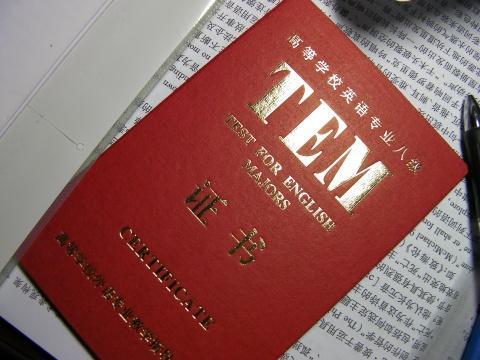當(dāng)前位置: Language Tips> 翻譯經(jīng)驗(yàn)
分享到
專八考試改革后,原來(lái)的英譯中部分取消,只保留了中譯英的部分。這部分題目要求學(xué)生將一段150個(gè)漢字組成的段落譯成英語(yǔ),能運(yùn)用語(yǔ)法、詞匯、修辭等語(yǔ)言知識(shí)。

這里是剛剛過(guò)去這個(gè)周末,英語(yǔ)專業(yè)八級(jí)考試翻譯部分的真題:
請(qǐng)將下面一段話中劃線的部分翻譯成英語(yǔ)。
流逝,表現(xiàn)了南國(guó)人對(duì)時(shí)間最早的感覺。“子在川上曰,逝者如斯夫。”他們發(fā)現(xiàn)無(wú)論是潺潺小溪,還是浩蕩大河,都一去不復(fù)返,流逝之際青年變成了老翁而綠草轉(zhuǎn)眼就枯黃,很自然有錯(cuò)陰的緊迫感。流逝也許是緩慢的,但無(wú)論如何緩慢,對(duì)流逝的恐懼使人們必須用“流逝”這個(gè)詞來(lái)時(shí)時(shí)警戒后人,必須急匆匆地行動(dòng),給這個(gè)詞灌注一種緊張感。
以下是北京新東方在線名師唐靜給出的參考譯文:
They realized that both the babbling brook and the mighty river would flow on, and that their waters would never return. They found that as time passed by, young men would become old and the green grass would turn yellow and wither in almost the blink of an eye. A sense of urgency naturally arose over the elusiveness of time. No matter how slowly time flowed, the very fear of its transiency compelled people to use the word “passage”to warn the coming generations of the necessity of taking prompt action; thus instilling the word with a sense of tension.
(來(lái)源:新東方在線,編輯:Helen)
分享到
關(guān)注和訂閱


口語(yǔ)
關(guān)于我們 | 聯(lián)系方式 | 招聘信息
電話:8610-84883645
傳真:8610-84883500
Email: languagetips@chinadaily.com.cn